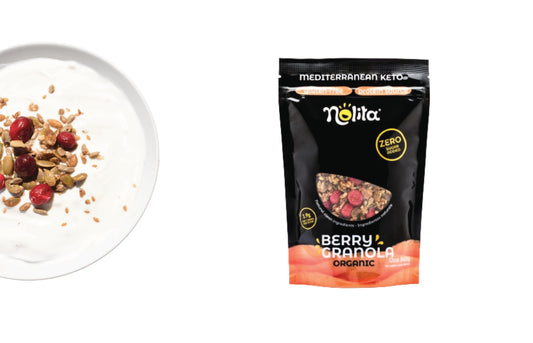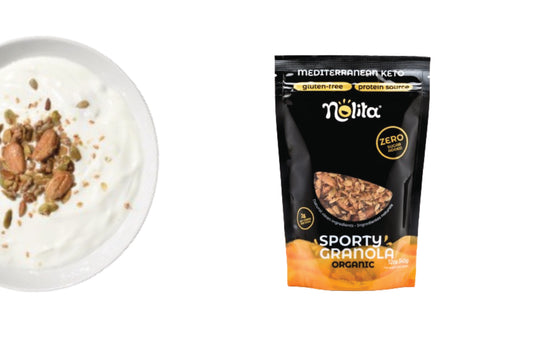Thinking gets tiring! Everyone who has spent long hours working or studying knows well that we are often more tired from thinking than if we ran for 50 minutes.
How can thinking be so tiring without even leaving our seats?
According to Suzana Herculano-Houzel (neuroscientist), although our brain weighs only 2% of our total body weight, it consumes about 25% of our daily energy. This is because, in addition to being the brain that runs our entire body (unconsciously), it is also responsible for the cognitive part of thinking - which makes us focus on a task, remember what we have to do and generate ideas and thoughts about everything to our around.
What can we do to promote a good brain function?
For this reason, it is essential to have a diet that promotes good brain function. When you want to drive somewhere, you have to put fuel in it. The fuel of the brain is energy, and energy comes from our food.
For this reason, Nolita has created a granola rich in ingredients that are essential for good brain function.
The whole grains, hazelnuts, almonds, and seeds that are the basis of our granola are rich in vitamins B1, B3, B9, E and Selenium that help in the formation of red blood cells that carry oxygen to the brain, formation of neurotransmitters such as dopamine that regulate brain activity, and the maintenance and formation of myelin that protects neurons and allows a rapid interaction between them, thus contributing to the memory and speed of transmission of neuronal messages. Furthermore, granola can be consumed with fruit and yogurts that are rich in other vitamins such as vitamin B12 and vitamin C, which also promote cognitive abilities. Nolita's granola is a rich and complete breakfast or snack for all ages, as it provides energy for the brain and allows them to concentrate for longer.
How to convince children to eat healthy food?
If adults should have a healthy diet, children should have a SUPER healthy diet. The growth process involves much more energy expenditure than adult life. This is why many children and teenagers go through a phase where they "eat this world and the other". Their bodies require a lot of energy, and the way to get it is through food. This doesn't mean that they have to eat a lot, but they have to eat essentially well!
A diet rich in vegetables, fruits, whole grains and dairy products is essential for the healthy growth of children and teenagers and helps them focus on tasks. But any adult who has ever had the arduous task of preparing a meal for these little humans is well aware of the number of demands and "prohibitions" imposed by their authorities. Sometimes they don't like vegetables, sometimes the milk is of animal origin and that's why they don't drink, sometimes the only fruit they eat is the one prepared for dinner because peeling bananas or washing apples is a lot of work.
That said, often the only way to make them happy is to feed them cookies and soda, which is still one of the few things that lack complaint.
For this reason, most school snacks for these little beings, have more sugars than their growing bodies can allow. With the evolution of the covid-19 pandemic and the confinement of these hungry children at home, obesity at an early age has become an imminent warning and for this reason the Directorate-General of Health has decided to launch a guide to rules for school lunches.
These rules are intended to help the little ones to concentrate on schoolwork. After all, healthy eating contributes to a functioning brain.
You can also try our Nutty Granola that will help you to concentrate!
Photo: @Siora18
Bibliography:
Hewings, M. (August 5, 2017). Sugar and mental health: A toxic combination?. Medical News Today, consulted 12/04/2021 in www.medicalnewstoday.com/articles/318818
Sandoiu, A. (January 18, 2020). Sugar alters brain chemistry after only 12 days. Medical News Today. consulted 12/04/2021. www.medicalnewstoday.com/articles/327512
Gregório, M., Lima, R., Sousa, R., (April,2021). Guia Lanches Escolares. DGS, consulted 12/04/2021.www.dge.mec.pt/noticias/guia-para-lanches-escolares-saudaveis





